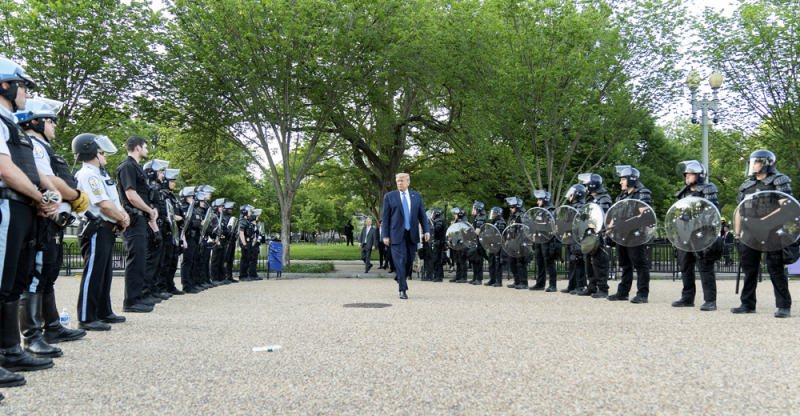
With protests rising and police morality corrupting with its increasing violence towards civilians, President Trump held a last-minute White House Rose Garden address to suppress the riots set off by the death of an African American civilian, George Floyd when a police officer knelt on his neck while he was face down in handcuffs.
President Trump threatened to invoke the Insurrection Act of 1807 in a statement, "If a city or state refuses to take the actions that are necessary to defend the life and property of their residents, then I will deploy the United States military and quickly solve the problem for them."
The Insurrection Law of 1807 is a United States federal law that empowers the president to deploy military and federalized National Guard troops anywhere in the nation to suppress circumstances with civil disorder, insurrection, and rebellion.
"I am mobilizing all available federal resources, civilian and military, to stop rioting and looting, to end the destruction," President Trump said in an announcement.
The latest implementation of the Insurrection Law of 1807 was called by President George H.W. Bush to suppress the 1992 LA riots which were triggered by the violent police beating of an African American civilian, Rodney King.
At the time in 1992, Bush addressed the decision by affirming that the violence in Los Angeles is "not about civil rights" or "the great issues of equality" but "the brutality of a mob" and said he would "use whatever force necessary" to restore order.
Similarly, in June 1, 2020, Trump called the violent rioting and looting that was triggered by George Floyd's death a "total disgrace" and said anyone who didn't respect curfew orders would be "prosecuted to the fullest extent of the law."
"We cannot allow the righteous cries of peaceful protestors to be drowned out by an angry mob," President Trump said.
Contradicting to President Trump's attempt to illustrate a picture of protestors being the violent antagonist that must be controlled, military police were rather the ones being more violent--firing tear gas, rubber bullets, and spraying peper spray at a peaceful crowd of protestors.



















